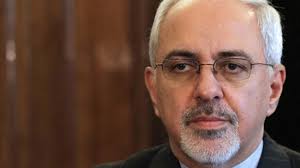 Iranian officials say that the White House is misleading the public about the details of an interim nuclear agreement reached over the weekend in Geneva.
Iranian officials say that the White House is misleading the public about the details of an interim nuclear agreement reached over the weekend in Geneva.
Iran and Western nations including the United States came to an agreement on the framework for an interim deal late Saturday night in Geneva. The deal has yet to be implemented
The White House released a multi-page fact sheet containing details of the draft agreement shortly after the deal was announced.
However, Iranian foreign ministry official on Tuesday rejected the White House’s version of the deal as “invalid” and accused Washington of releasing a factually inaccurate primer that misleads the American public.
“What has been released by the website of the White House as a fact sheet is a one-sided interpretation of the agreed text in Geneva and some of the explanations and words in the sheet contradict the text of the Joint Plan of Action, and this fact sheet has unfortunately been translated and released in the name of the Geneva agreement by certain media, which is not true,” Foreign Ministry Spokeswoman Marziyeh Afkham told the Iranian press on Tuesday.
Afkham and officials said that the White House has “modified” key details of the deal and released their own version of the agreement in the fact sheet.
Iran’s right to enrich uranium, the key component in a nuclear weapon, is fully recognized under the draft released by Tehran.
“This comprehensive solution would enable Iran to fully enjoy its right to nuclear energy for peaceful purposes under the relevant articles of the NPT in conformity with its obligations therein,” the agreement reads, according to a copy released to Iranian state-run media.
“This comprehensive solution would involve a mutually defined enrichment programme with practical limits and transparency measures to ensure the peaceful nature of the programme,” the Iranian draft reads. “This comprehensive solution would constitute an integrated whole where nothing is agreed until everything is agreed.”
Iran’s objection to the deal as presented in the fact sheet raises new concerns about final stage talks meant to ensure that the deal is implemented in the next few weeks.
The White House confirmed to the Washington Free Beacon on Monday that the final details of the plan have yet to be worked out, meaning that Iran is not yet beholden to a six month freeze its nuclear activities.
“Technical details to implement the Joint Plan of Action must be finalized before the terms of the Plan begin,” a senior administration official told the Free Beacon. “The P5+1 and Iran are working on what the timeframe is.”
The White House could not provide additional details on the timeframe when approached by the Free Beacon on Tuesday.
As the details are finalized, Iran will have the ability to continue its most controversial enrichment program. This drew criticism from proponents of tough nuclear restrictions.
“The six month clock should have started early Sunday morning,” said former Ambassador Mark Wallace, the CEO of United Against a Nuclear Iran (UANI). “If this is a serious agreement, the P5+1 must ensure that these negotiations do not become a tool for Iran to further increase its enrichment abilities.”
Christians United for Israel (CUFI) Executive Director David Brog said he fears that the White House may have been “played by the Iranians.”
“This may prove to be yet another worrisome sign that the Obama Administration was played by the Iranians,” Brog told the Free Beacon in a statement. “Their concessions were either illusory or meaningless, while ours will resuscitate the Iranian economy.”
The White House said in its fact sheet on the deal that it could release up to $7 billion dollars to Iran during the first phase of the agreement.
The United States additionally agreed to suspend “certain sanctions on gold and precious metals, Iran’s auto sector, and Iran’s petrochemical exports, potentially providing Iran approximately $1.5 billion in revenue,” according to the now disputed fact sheet.
Iran could earn another $4.2 billion in oil revenue under the deal.
Another “$400 million in governmental tuition assistance” could also be “transferred from restricted Iranian funds directly to recognized educational institutions in third countries to defray the tuition costs of Iranian students,” according to the White House.
While Iranian foreign ministry officials did not specify their precise disagreements with the White House, they insisted that “the Iranian delegation was much rigid and laid much emphasis on the need for this accuracy.”
Free Beacon

Leave a Reply
You must be logged in to post a comment.